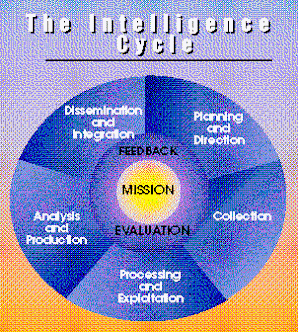Intelligence analysts taking over leading role in spy game: CSIS chief
In the intelligence world, the spy who goes around uncovering and
collecting secrets has traditionally played the role with the most
stature. But today that role — glamorized in countless
Hollywood films — is starting to take a back seat to the job of the
behind-the-scenes intelligence analyst, says the director of Canada's
spy agency, the Canadian Security Intelligence Service.
In a speech obtained under access-to-information laws, Richard Fadden said
CSIS' mandate is no longer just about working informants and
intercepting communications but understanding the information collected
and being able to predict how threats to the country will change.
"In
today's information universe of WikiLeaks, the Internet and social
media, there are fewer and fewer meaningful secrets for the James Bonds
of the world to steal," Fadden told a conference of the Canadian
Association of Professional Intelligence Analysts in November 2011.
"Suddenly the ability to make sense of information is as valued a skill
as collecting it."
Fadden said today's intelligence
analysts must be well-read in history, religion, politics and geography
and be able to provide answers to complex questions, such as what sort
of threat political upheaval in the Middle East poses to Canada's
security interests five years from now. "We are expected to
provide not just information but insight — and of the two, insight is
often the scarcer commodity," Fadden said.
Asked whether
this statement suggests a lack of qualified intelligence analysts right
now, a spokeswoman for Fadden said Monday that Canada's
intelligence-analysis capacity is "robust" and "as good as you'd find
anywhere in the global security community." "Like any
organization, we are always looking to raise our game," Tahera Mufti
said via email. "The increasing complexity of the threat environment,
not least the speed with which new threats can materialize, means that
analysts are learning not just to scan the horizon but to try and look
over it.
"CSIS and partner agencies work together through
joint training initiatives, and the sharing of best practices, to
bolster our collective analytic capability." In his speech,
Fadden said that even though al-Qaida's capacity to carry out attacks
has decreased, its capacity to inspire homegrown terrorism has
increased.
"We increasingly have to worry about so-called
'lone wolves' or 'stray dogs' — terrorists who act alone and therefore
are difficult to detect," he said, citing the attempted car bombing of
New York City's Times Square in 2010 and the 2011 shooting rampage in
Norway. While violence driven by Sunni Islamist extremism
is a "leading threat" to our national security, we must not lose sight
of the possibility of politically motivated attacks that have nothing to
do with al-Qaida, he added.
Today's intelligence analysts
must be more creative in their thinking and be able to "imagine the next
attack" before it happens, Fadden said. "Every now and then we need to
pause and pretend that it is September 10, 2001." Fadden
told the group of analysts that as their influence grows, they will need
courage "because on occasion you are required to give policymakers
information they might find decidedly inconvenient. "The
politicization of intelligence is an occupational hazard, and must be
resisted," he said. "The Iraq war remains a lesson for us all. We need
more than ever to be honest and true to our assessments."

